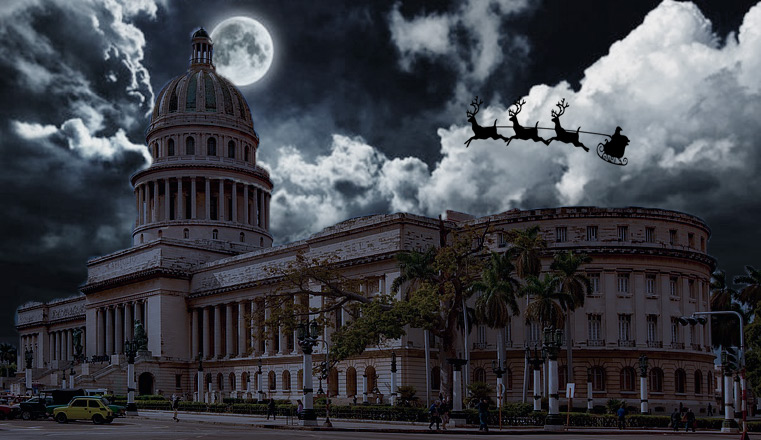![Source: Joint Press Corps vihttp://koreajoongangdaily.joins.com/news/article/article.aspx?aid=3044038&cloc=joongangdaily%7Chome%7Ctop [Fair Use] Joint Press Corps vihttp://koreajoongangdaily.joins.com/news/article/article.aspx?aid=3044038&cloc=joongangdaily%7Chome%7Ctop [Fair Use]](https://www.exportlawblog.com/images/olympic_plane.jpg) The Olympics are, in theory, a time when foreign policy should be put aside and world athletes simply compete in the probably vain hope that peaceful athletic games might have a spill-over effect into the stormier regions of international relations.  That being said, UN and US sanctions have gotten tangled up in the upcoming Winter Games in South Korea.
The Olympics are, in theory, a time when foreign policy should be put aside and world athletes simply compete in the probably vain hope that peaceful athletic games might have a spill-over effect into the stormier regions of international relations.  That being said, UN and US sanctions have gotten tangled up in the upcoming Winter Games in South Korea.
First, the International Olympic Committee, following its checkered past, ignored UN sanctions by shipping recreational sports equipment to the Nork athletes for training.  If any of that equipment was U.S. origin, the IOC would have violated U.S. sanctions all well. Both prohibit the export of “recreational sports equipment” to North Korea.
Recently, an obscure provision in Executive Order 13810 reared its ugly head. Section 2(a) prohibits foreign aircraft that have landed in North Korea from visiting the United States for 180 days after the aircraft has departed North Korea. When the Executive Order came out, it was hard to imagine that this would ever apply to anything. Who flies into Nork airports that would want to later fly those planes to the United States? But now, it turns out, the South Korean ski team had chartered an Asiana aircraft to fly to North Korea’s Masikryong Ski Resort for training with the North Korean team. The plane would then to return to South Korea on the following day with the North Korean skiers who would remain in South Korea to participate in the Winter Games. Oops.
Apparently, according to this source, OFAC was initially reluctant to waive section 2(a) for the chartered Asiana flight, which would have pretty much put the kibosh on the flight to the joint training session. But minutes before the flight was to take off on 10:40 a.m. Wednesday time, Korea time, OFAC had a change of heart and the airplane left for North Korea.
The Bureau of Industry and Security (“BIS”) was not involved, even though BIS has said that the Airbus 321 is subject to the EAR as a result of havingU.S. origin engines which constitute more than 10 percent of the value of the aircraft. Presumably everyone felt that License Exception AVS would cover the temporary sojourn of the A321 in North Korea, even though the regulations are poorly written in this regard and do not clearly cover foreign manufactured aircraft subject to the EAR flying from a foreign country to North Korea.
License Exception AVS covers (1) foreign registered aircraft on temporary sojourn in the United States departing for foreign destinations, (2) U.S. registered aircraft departing for a temporary sojourn in a foreign destination, and (3) “[c]ivil aircraft legally exported from the United States.” Section 764.4(c)(6) says that AVS may be used for North Korea to the extent that it involves civil aircraft legally exported from the United States. Asiana’s A321 was not itself exported from the United States, although the U.S. origin engines that make the aircraft subject to the EAR were. To reach the result that AVS applies here, you have to interpret “civil aircraft legally exported from the United States” to cover aircraft where U.S. origin parts which make the aircraft subject to the EAR were legally exported, a plausible (if not certain) reading, I suppose, of that language.

 Posted by
Posted by  Category:
Category: 

![Hotel Vesna via https://images.trvl-media.com/hotels/5000000/4730000/4724200/4724109/4724109_48_d.jpg [Fair Use] Hotel Vesna via https://images.trvl-media.com/hotels/5000000/4730000/4724200/4724109/4724109_48_d.jpg [Fair Use]](https://www.exportlawblog.com/images/hotel_vesna.jpg)
![Nicolas Maduro via https://commons.wikimedia.org/wiki/File:Nicolas_Maduro_February_2017.png [Fair Use] Nicolas Maduro via https://commons.wikimedia.org/wiki/File:Nicolas_Maduro_February_2017.png [Fair Use]](https://www.exportlawblog.com/images/maduro.jpg)
![Ramzan Kadyrov and Cat via his Instagram account [Fair Use] Ramzan Kadyrov and Cat via his Instagram account [Fair Use]](https://www.exportlawblog.com/images/lost-cat.jpg)



